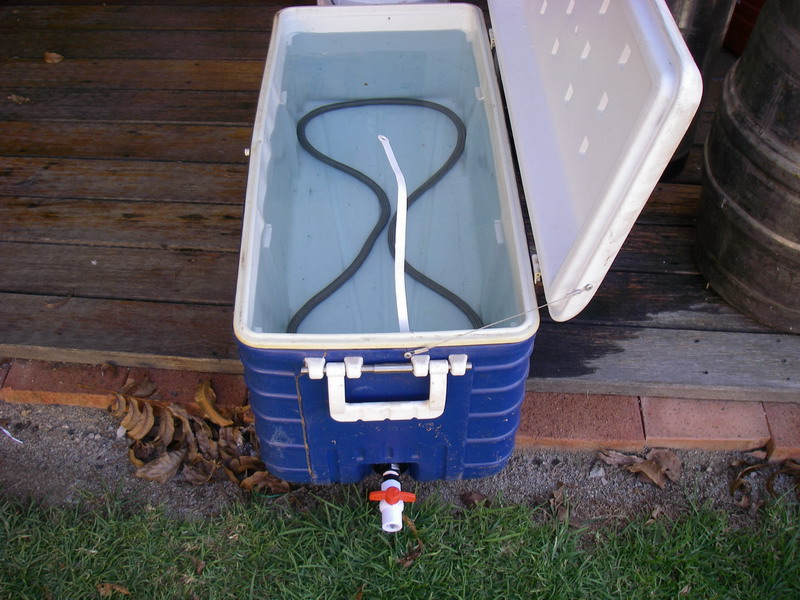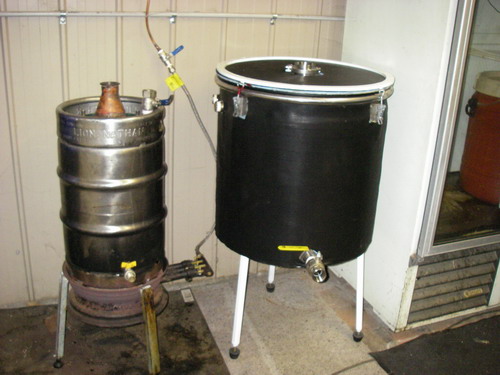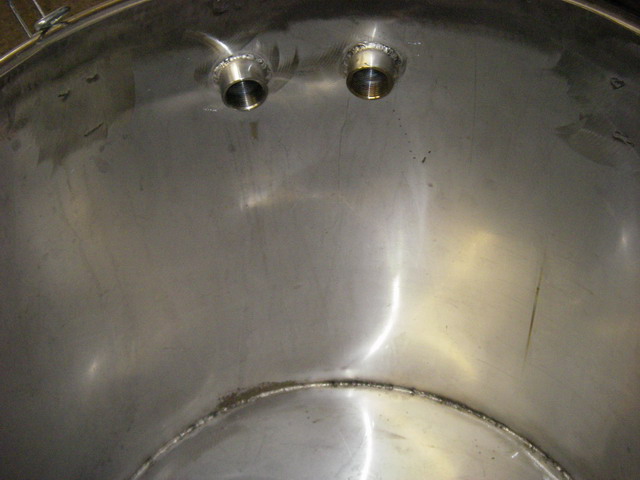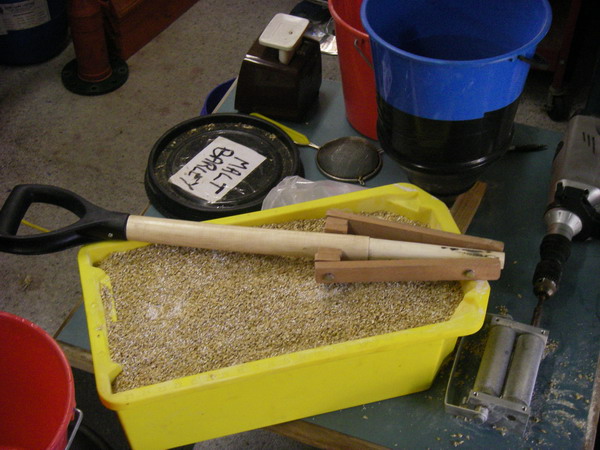I'm about to start my transitional phase from nearly 30 years of 'Kit and Kilo' to allgrain. So please bear with me if i get some stuff wrong or show a lack of understanding in all the german words/processes
The reason being that i have discovered a free source of base malt
 :rockin:
:rockin:
ATM i'm studying hard trying to get the processes and how they fit into my equipment sorted. I've been reading all the stickies, searching the forums for stuff i don't know. I've downloaded Brewmate software fro recipes etc.
The goal so far is to find one or maybe two recipes as 'house beer' that are cheap and simple. I like the Thomas Coopers Wheat Beer extract kits and i like an australian Kent Brown ale as a commercial beer. These will come down the track.
The recipe i'm working on as house beer first is an American Pale Ale though and to this aim i have ordered the following ingredients based on price and advice from an allgrain mate or two;
unlimited (to a point) pale malt
25kg bag of Caramalt
25kg bag of wheat malt
1kg pellets Centennial
1kg pellets Pride of Ringwood
500gm block US-05 safale yeast.
I plan on using this esky shown in the pic (i think i have the pic attached) with 100l of water for single infusion and sparging, then a boil in 160l stainless gas fired pot to make up to 80 litres 20 us gallons at a time.
This will limit my beer making to one saturday morning a month hopefully.
After this i plan on fermenting in either one huge or two large fermenters till ready.
Here's where i'm not sure though, i have seven 5 gallon ball lock kegs. I'd like to think i could rack the beer into the sanitised kegs after fermenting, burp them with food grade Co2 and then just store them in the shed until i am ready to carbonate and refridgerate.
Is this possible?
I have read about the no chill cube method, but would prefer to have the beer fermented and ready to go, i just don't know whether it would go off unrefridgerated but protected by a blanket of Co2?
Commercial beer is transported in kegs all the time, but i assume it's pasturised or protected by preservatives

The reason being that i have discovered a free source of base malt

 :rockin:
:rockin:ATM i'm studying hard trying to get the processes and how they fit into my equipment sorted. I've been reading all the stickies, searching the forums for stuff i don't know. I've downloaded Brewmate software fro recipes etc.
The goal so far is to find one or maybe two recipes as 'house beer' that are cheap and simple. I like the Thomas Coopers Wheat Beer extract kits and i like an australian Kent Brown ale as a commercial beer. These will come down the track.
The recipe i'm working on as house beer first is an American Pale Ale though and to this aim i have ordered the following ingredients based on price and advice from an allgrain mate or two;
unlimited (to a point) pale malt
25kg bag of Caramalt
25kg bag of wheat malt
1kg pellets Centennial
1kg pellets Pride of Ringwood
500gm block US-05 safale yeast.
I plan on using this esky shown in the pic (i think i have the pic attached) with 100l of water for single infusion and sparging, then a boil in 160l stainless gas fired pot to make up to 80 litres 20 us gallons at a time.
This will limit my beer making to one saturday morning a month hopefully.
After this i plan on fermenting in either one huge or two large fermenters till ready.
Here's where i'm not sure though, i have seven 5 gallon ball lock kegs. I'd like to think i could rack the beer into the sanitised kegs after fermenting, burp them with food grade Co2 and then just store them in the shed until i am ready to carbonate and refridgerate.
Is this possible?
I have read about the no chill cube method, but would prefer to have the beer fermented and ready to go, i just don't know whether it would go off unrefridgerated but protected by a blanket of Co2?
Commercial beer is transported in kegs all the time, but i assume it's pasturised or protected by preservatives













































![Craft A Brew - Safale S-04 Dry Yeast - Fermentis - English Ale Dry Yeast - For English and American Ales and Hard Apple Ciders - Ingredients for Home Brewing - Beer Making Supplies - [1 Pack]](https://m.media-amazon.com/images/I/41fVGNh6JfL._SL500_.jpg)















